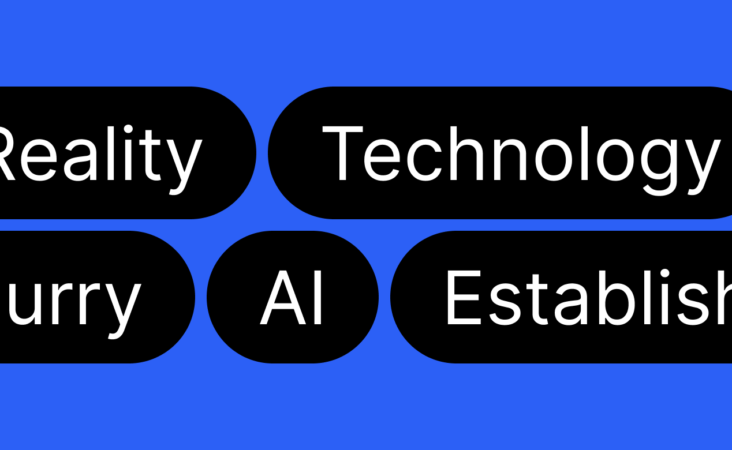
It seems likely that AI is going to change the world. In fact, artificial intelligence is influencing practically every sector of human endeavor. With tools like ChatGPT and AI art generators gaining widespread attention, it is already the primary force behind developing technologies like big data, robots, and IoT. It will continue to be a technical innovator for the foreseeable future.
According to IBM research by 2022 About 44% of organizations want to invest significantly in AI and incorporate it into their operations.
But how exactly will AI change the world of narrative?
Since 1951, when Christopher Strachey’s checkers program at the University of Manchester finished an entire game on the Ferranti Mark I computer, artificial intelligence (AI) has advanced significantly.
From that time, technologies that rely on model- and algorithm-based machine learning and increasingly place a focus on perception, reasoning, and generalization have been developed using AI, including the sequencing of RNA for vaccines and the modeling of human speech. Perhaps this transition was difficult to notice, but AI has already entered daily. Even if we are not aware of it, we interact with AI technology in devices more frequently than ever in our lives. Have you ever considered how Netflix might suggest the finest options for your preferences? Alternatively, how do social media platforms customize their material to keep you on their platforms for as long as possible? These examples show how AI has been incorporated into our daily lives over time.
For instance, during the most recent epidemic that affected the entire world, AI improved the achievement of medical goals by reporting correct information and boosting the effectiveness and speed of medical processes and research initiatives. First of all, it aided in the development and testing of vaccines at the molecular level. Second, it helped with hospital capacity planning on a clinical level, which was obviously surpassed. Lastly, it provided accurate forecasts and predictions of COVID-19 instances while combating infodemiology, an information glut that is available to everyone.
Hyped ChatGPT
Speaking about AI in our days, we should mention the well-known ChatGPT. Large amounts of data and sophisticated computational methods are used by chatbots like GPT to generate predictions about how to connect words in meaningful ways. They have access to a huge vocabulary and knowledge, and they also comprehend words in context. This enables them to convey encyclopedic knowledge while imitating speech patterns.
Based on GPT-3.5, OpenAI created the big language model chatbot known as ChatGPT (Generative Pre-Trained Transformer). It is remarkably capable of engaging in conversations and responding in a way that occasionally seems surprisingly human.
Based on statistical probability, it functions like a supercharged predictive text, putting one word in front of another. Despite having no real expertise, it nevertheless manages to seem terrifyingly human and credible. Yet, ChatGPT, the most recent advancement in technology known as “big language model tools,” does not “think” or communicate with sentience like humans do. According to experts, even if ChatGPT can explain quantum physics and compose poetry at will, a full AI takeover isn’t exactly on the horizon.
What can go wrong with AI?
The key to determining the possible social harm that AI may create is understanding where it is currently and where it can go. Technology and artificial intelligence have not yet reached their full potential.
As AI is still in its early stages of development, it is unsafe to estimate how much it might change our lives. Yet given where it’s at now, we can pinpoint both the effects it is already having on our society and the potential outcomes. It is challenging to foresee the long-term hidden disadvantages when using a disruptive technology. As the internet was introduced into our life, issues like internet addiction and information overload were apparent for the first time. The goal of introducing new technology into our lives is to simplify our lives. AI is a general rule. Through lowering sickness rates, cutting down on waste, putting a stop to inequality, and raising standards of living, it seeks to make the world a better place to live. Regrettably, as has happened in the past, certain issues can develop later.
Several jobs have been automated out of existence with the advent of AI, rendering them obsolete. Examples are automated customer service agents or self-driving vehicles that, respectively, replace human assistance and drivers. The worry of losing your work and being replaced by a machine has emerged in society as a result of this technological shift.
AI has also sparked worries about data privacy. How much access and control do companies have over our data? Big Data and AI play a crucial part, have been dubbed the era of the new currency as data. As you view this article, a significant amount of data is being gathered by cookies and is subsequently processed for various purposes by numerous businesses and services. Implementing AI in our world implies assuming that we will have to share our data as it works hand in hand with big data.
A wide-scale but regulable AI future
Even though we are unable to accurately predict the future, we can attempt to do so in the near future using the information we have so far. Humans developed artificial intelligence with the intention of making our daily lives better. So, since it was made by humans, we should constantly be in charge of it to make sure that its goal is always achieved and that it is not put to use for other objectives. Given its vast potential and ability to advance, artificial intelligence (AI) may eventually surpass human intelligence and capacities.
We need to make sure that technology reflects society’s ideals in every process it is used in in order to prevent this grim future and the issues it would bring about. Yet spreading these ideas throughout society and giving that society a critical and ethical awareness are more important than simply knowing about them.


